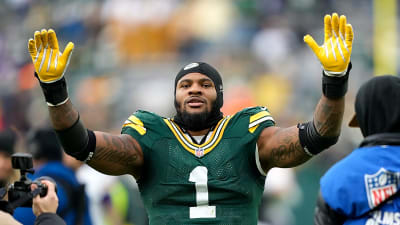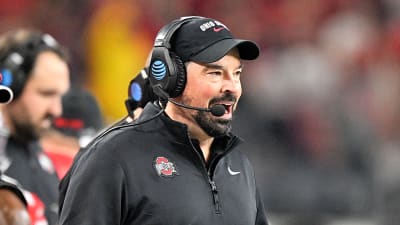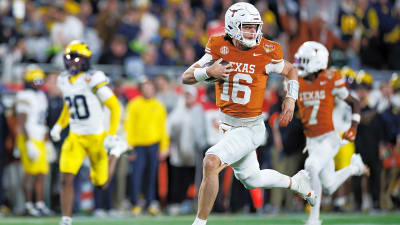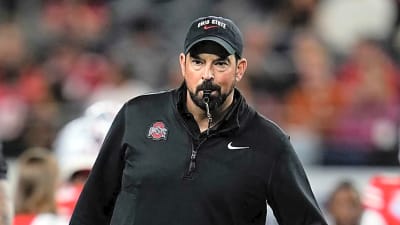Celtic’s Matchday 4 trip to Denmark was framed on The Celtic Star as a potential crossroads, a night of renewal, or a reckoning. The 3–1 defeat, a scoreline shaped by a disastrous first half in which Celtic shipped three goals, confirmed it was very much the latter…
More concerning still, the performance was neither surprising nor anomalous, it was familiar, painfully familiar.
Martin O’Neill has steadied the club domestically since stepping in, but no interim can perform miracles with the structural issues Celtic carry into Europe every season. Conceding cheap goals away from home is not a new phenomenon, nor is collapsing in short, brutal bursts. This is not a managerial problem, it’s institutional.
Dermot Desmond once responded to European failure during Neil Lennon’s tenure by commissioning a sports psychologist. Since then, squads have changed, managers have come and gone, but the same results recur.
READ THIS…SANDMAN’S DEFINITIVE RATINGS: CELTIC @ LEGOLAND
That in itself is proof, this is not a mentality issue. It’s a squad issue. A planning issue. A governance issue.
Celtic went into the match without four players who would almost certainly have started, Jota, Cameron Carter-Vickers, Kelechi Iheanacho, and Alistair Johnston. On top of that, the club has lost key players without replacing them with equivalent quality.
Instead, the recruitment model increasingly leans on projects and the requirement to include a set number of Scottish-trained players to give the squad its depth, on neither of those supporting fronts are we getting it right, and that has resulted in squad padding rather than genuine rotational depth.
Celtic can still field a decent first XI when everyone is fit, but go beyond that, as injuries and fatigue forced us to last night, and the drop-off is stark. Some players simply aren’t at the required level, regardless of their work rate or commitment, which is rarely in question.
The team had just played 120 emotionally and physically draining minutes in a cup semi-final. Fatigue was always going to bite, and that’s not an excuse, it is a reason. But the tactical approach did them few favours. Prior to this game and having looked at the opposition, we said this was a match for a balance between possession and directness, for letting the ball do the work at times for tired minds and legs, and for choosing our moments to break out. Instead, Celtic tried to play Midtjylland at their own high-intensity game, for the whole game, and were overwhelmed.
The Danish side were everything Celtic were not, strong, fast, cohesive, and organised. Every 50/50 battle looked like men against boys, sadly. Their athleticism and energy exposed Celtic mercilessly.
Midtjylland aren’t a great team, but they are good, they are smartly run, with aligned leadership, a coherent club-wide philosophy, and a data-driven recruitment structure that maximises a far smaller budget. Their model shows what can be achieved when governance is modern, coordinated and ambitious.
Some performances were simply not at the level required for European competition, others gave everything and emerged with credit. Trusty, Tounekti, McGregor, and Osmand deserved pass marks, the latter’s hamstring injury could prove an even bigger blow long-term than the result itself. Meanwhile, Ralston, Tierney, Kenny, and Nygren struggled badly, and Schmeichel, though he made some saves, was let down by poor distribution.
It could easily have been five, or six, and Celtic could have had no complaints. That it wasn’t is where Celtic do deserve credit.
What happened in Denmark was predictable, because it is systemic. Extraordinary effort from a beleaguered squad brought Celtic to a cup final just days ago, and the interim coaching staff have lifted morale and improved domestic form in a very short time. They were never likely to fix years of structural rot on European matchday four.
Europe, whether Champions League or Europa League, remains out of reach on any kind of consistent basis because Celtic are operating far below their potential. Not for lack of resources, but for lack of vision.
Modern football clubs appoint world-class analysts, recruiters, and performance staff, by scouring the globe. Celtic too often appoints from a much smaller pool, one influenced by personal loyalty, proximity, and familiarity rather than expertise.
The result is predictable, Celtic are a club run at a fraction of their capacity competing against clubs who maximise every inch of theirs.
Until the club commits to long-term planning, of five and ten years instead of six and 12 months, the European story will not change, we will keep returning to nights like this.
Midtjylland were stronger, quicker, fitter, more composed, and far more cohesive. Celtic were tired, undermanned, and ultimately outclassed. The match was lost before half-time, and the Danes simply managed their lead thereafter.
Yet the defeat, chastening as it was, should not shock anyone. It was not an outlier. It was the logical outcome of years of stagnation sold as stability.
If there is a silver lining, it is that Celtic have landed, albeit accidentally, on an interim management team that clearly has something about them. They have lifted the mood, restored a measure of belief, and can absolutely take this team forward on the domestic front.
But that is not the same as saying they can, or should, be saddled with fixing Europe.
Europe requires a plan, a structure, a philosophy, an identity. Something that survives beyond any one manager, and something that allows whoever is in the dugout to inherit a functioning football ecosystem rather than an annual rebuild.
The worry is Celtic are once again approaching the managerial search backwards. There seems to be a belief that appointing a new manager and handing him control will magically generate change. It won’t. Not when the foundations are weak.
A modern club builds its identity and infrastructure first, the football department, the recruitment model, the long-term strategy, the analytics systems, the style of play, the athletic standards. The manager then comes in to refine it, to landscape the gardens, to add the flourishes, to evolve the vision.
Celtic are, once again, trying to start with the roof. Until the foundations are built, the top will always, eventually, collapse.
We have an interim management team who have bought Celtic the gift of time. We need to use every second of that gift to restructure.
Celtic should not be hiring a manager to fix the club. Celtic should be fixing the club so they can hire the right manager.
More must-reads:
- AFCON 2025: Biggest and best stories from Matchday 3
- Steelers DC gives massive T.J. Watt hint for pivotal Week 18 clash vs. Ravens
- The 'Leading receivers vs. each NFL team' quiz
Breaking News
Trending News
Customize Your Newsletter
 +
+
Get the latest news and rumors, customized to your favorite sports and teams. Emailed daily. Always free!








